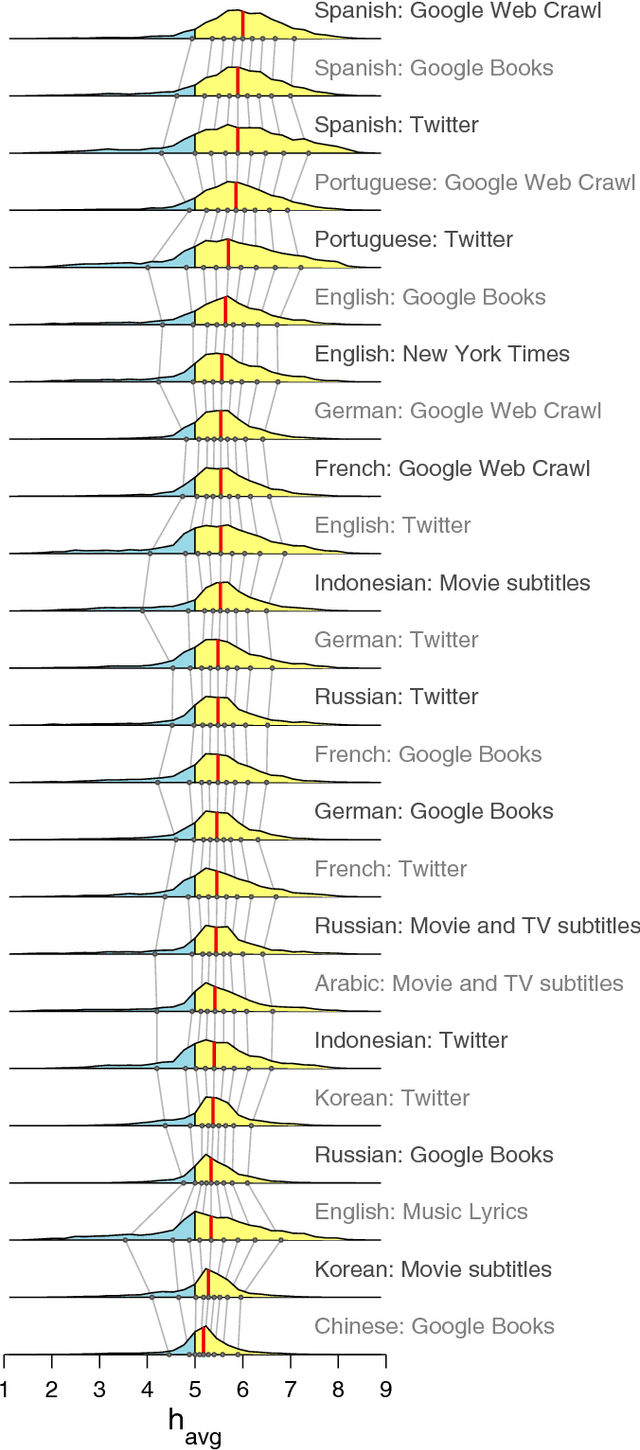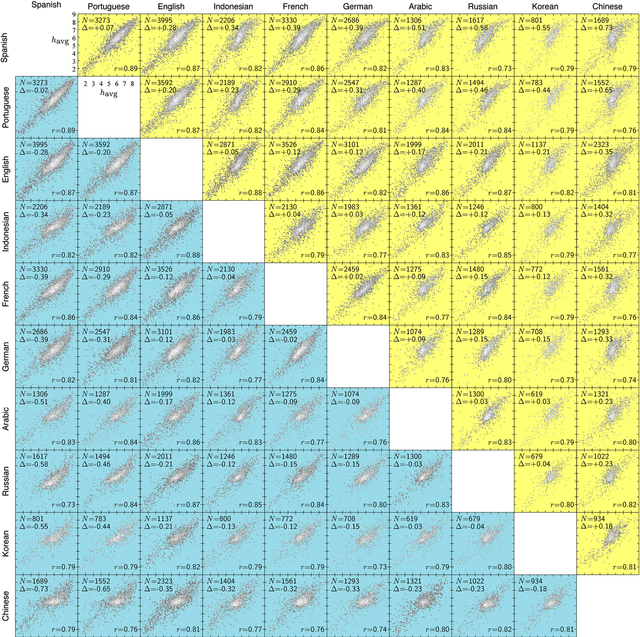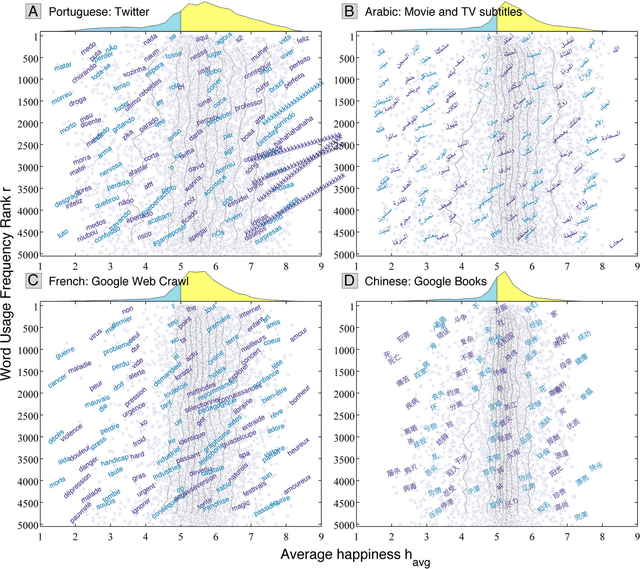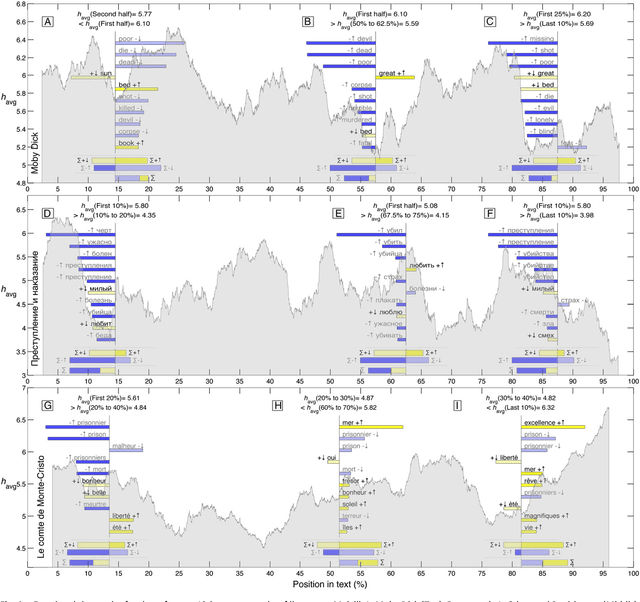Isabel M. Kloumann
Human language reveals a universal positivity bias
Jun 15, 2014



Abstract:Using human evaluation of 100,000 words spread across 24 corpora in 10 languages diverse in origin and culture, we present evidence of a deep imprint of human sociality in language, observing that (1) the words of natural human language possess a universal positivity bias; (2) the estimated emotional content of words is consistent between languages under translation; and (3) this positivity bias is strongly independent of frequency of word usage. Alongside these general regularities, we describe inter-language variations in the emotional spectrum of languages which allow us to rank corpora. We also show how our word evaluations can be used to construct physical-like instruments for both real-time and offline measurement of the emotional content of large-scale texts.
Positivity of the English language
Jan 12, 2012



Abstract:Over the last million years, human language has emerged and evolved as a fundamental instrument of social communication and semiotic representation. People use language in part to convey emotional information, leading to the central and contingent questions: (1) What is the emotional spectrum of natural language? and (2) Are natural languages neutrally, positively, or negatively biased? Here, we report that the human-perceived positivity of over 10,000 of the most frequently used English words exhibits a clear positive bias. More deeply, we characterize and quantify distributions of word positivity for four large and distinct corpora, demonstrating that their form is broadly invariant with respect to frequency of word use.
* Manuscript: 9 pages, 3 tables, 5 figures; Supplementary Information: 12 pages, 3 tables, 8 figures
 Add to Chrome
Add to Chrome Add to Firefox
Add to Firefox Add to Edge
Add to Edge